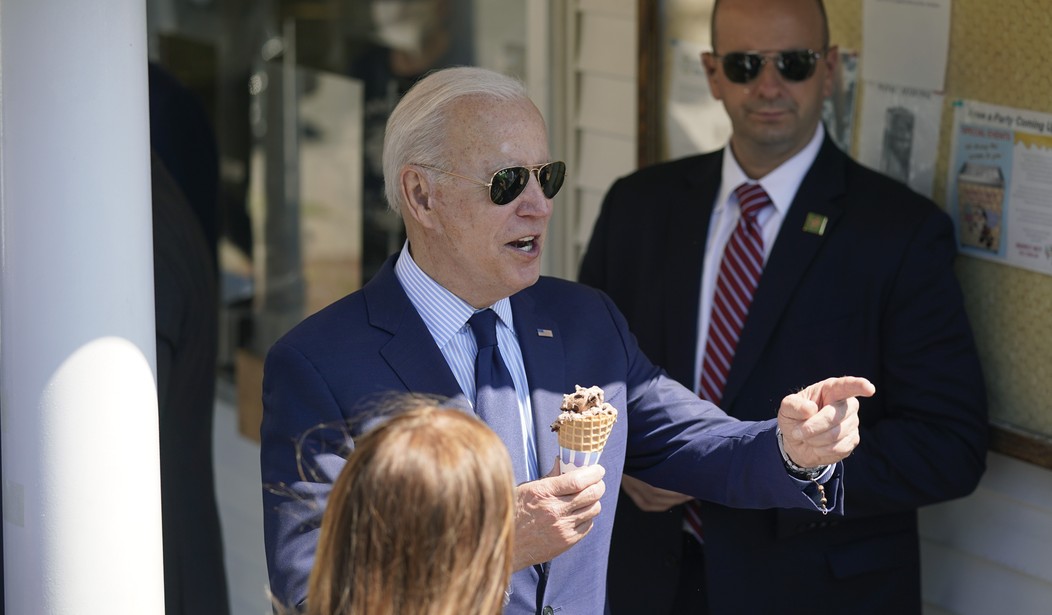President Joe Biden decided to embrace his inner authoritarian on Thursday when he announced a series of sweeping measures ostensibly designed to fight the spread of COVID-19 and the Delta variant. After he declared he would use the power of the federal government to compel businesses to require their employees to be vaccinated, Republicans slammed him for the brazen overreach.
But there are other problems with Biden’s plan. For starters, it is undoubtedly going to be challenged in the courts. Indeed, Republican governors have already threatened legal action to prevent the president from imposing these measures. There are several areas where the president’s mandate is vulnerable to legal action.
Additionally, the plan seems to be unworkable. If the administration is unable to adequately enforce the executive order Biden plans to issue, then it won’t actually make a difference.
When it comes to the legalities – or illegalities as the case may be – Republicans will be challenging the constitutionality of Biden’s executive order. The issue that will be litigated is whether the executive branch has the authority to issue such sweeping vaccine orders.
John Fritze penned a piece for USA Today in which he outlined some of the legal hurdles the Biden administration could face. He wrote:
But it is state and local governments that generally have the power to impose those requirements. President Donald Trump faced significant pushback from local officials in both parties when he asserted last year that his authority to control COVID-19 was “total.” Throughout the pandemic the Centers for Disease Control and Prevention and other federal agencies have generally issued guidelines rather than mandates.
Mark Barnes, a lawyer and former associate health commissioner in New York, told USA Today that “the public health power is traditionally reserved to the states under the theory that public health is part of the state police power.” He explained that “there are many who would argue that this is a direct infringement on the public health power states.”
Some have contended that the Supreme Court’s 1905 decision in Jacobson v. Massachusetts would provide a precedent that would allow the federal government to enforce vaccine mandates. Fritze wrote:
Henning Jacobson, a pastor from Cambridge, Mass., refused a smallpox vaccination during an outbreak of the disease in 1905, citing bad reactions he had to shots in the past. He was fined $5 – about $150 today. He sued, claiming that the state’s vaccine mandate violated his 14th Amendment rights. But the Supreme Court turned back his challenge, asserting that “a community has the right to protect itself against an epidemic of disease which threatens the safety of its members.”
However, this ruling applies only to states enacting mandatory vaccination measures, not the federal government. In light of this, it is not likely this defense will be effective.
Biden’s measure would also be tricky to put into action. ABC News 5 pointed out that the rule – which would impact up to 100 million Americans – would be enforced by the Occupational Safety and Health Administration (OSHA). Sharona Hoffman, a professor of law and bioethics at Case Western Reserve University, told ABC that “it’s going to be difficult to enforce because we’re now reaching employers all over the country.”
She pointed out that “there is no centralized system right now for employers to report that [they] have 100% of their employees vaccinated,” and asked:
“If you don’t have an easy way to report that, how are you going to catch people that are not complying? What are you going to do about it?”
In the past, OSHA has not been tasked with an effort as comprehensive as what President Biden is proposing. To put it simply, they are not equipped to enforce his authoritarian rules.
Michael Goldberg, an associate professor of design and innovation at Case Western Reserve University’s Weatherhead School of Management, told USA Today that Biden’s measure could have a deleterious impact on the labor market. He said:
“Recently, I was talking to a friend who owns a manufacturing firm where 50% of his staff is vaccinated. He doesn’t have a vaccine mandate because he is worried about people leaving. It is so hard to retain talent.”
Goldberg also argued that the order would “add additional strain to the system.”
President Biden’s proposed vaccine mandate will likely not stand up to legal scrutiny, and putting it into action might be untenable. So why is he doing it in the first place?
It could be that he believes he will succeed despite the unconstitutionality of his measure. Perhaps he believes the legal challenges will fail. When questioned about Republicans threatening to file a lawsuit, Biden responded by saying they can “have at it.”
It is apparent that this president cares nothing for the Constitution, so he would have no problem using the government to force Americans to take the jab. The tone he used during his remarks on Thursday showed a thinly-veiled contempt for those refusing to get inoculated. It is very much possible that the president does not think he will lose this battle.
On the other hand, it is equally possible that Biden is only doing this to appease the hard-left wing of the Democratic Party. Perhaps he wishes to throw a bone to the socialist types, who never saw a display of authoritarianism they didn’t like. In this way, he can claim that he is trying to combat the Delta variant, so he doesn’t look like a total failure. If his effort does not succeed, he can simply blame those evil Bud-light-drinking MAGA people.
Either way, it is clear that the battle over mandatory vaccines and masks has not yet been settled. The next stop will be the courts. The final stop will likely be the Supreme Court.













